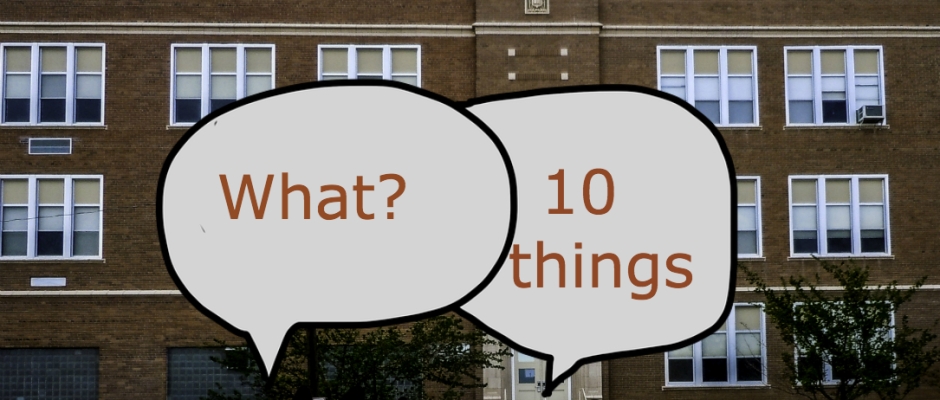Cloaking Inequity: 10 Things to Know about the Charter School Debate
At separate conventions this summer, the NAACP and the Black Lives Matter Movement—the nation’s oldest and the youngest civil rights organizations—passed resolutions critical of charter schools and the privatization of education. We may have reached a watershed moment for market-based school choice.
This article appeared here first at the Progressive Magazine.
Here are 10 things to consider about the market-based charter schools debate:
- Where did market-based school choice come from? Writing in the 1950s, the libertarian economist Milton Friedman, followed by John Chubb and Terry Moe in the 1990s, argued for a profit-based education system where resources are controlled by private entities rather than by democratically elected governments. They recommended a system of public education built around parent-student choice, school competition, and school autonomy as a solution to what they saw as the problem of direct democratic control of public schools.
- School “choice” does not cure the inequality created by markets. Not surprisingly, the academics neglected to mention that market-based mechanisms are the very system that created the inequities in American public schools today. Along with other public policies, including redlining, market forces created racial and economic segregation. Instead of making this situation better, school choice made this situation worse. A group of Chilean economists mentored by Friedman, the Chicago Boys, took Friedman’s theories about education back to their home country and to push an education system with universal choice and relaxed regulation and oversight. Over the past several decades, Chile simultaneously became one of the richest countries in South America and the most unequal developed country in the world.
- The position of the NAACP and Black Lives Matter on privatization is consistent with the views of past civil rights leaders. NAACP co-founder W.E.B. Du Bois, in his essay Negroes and the Crisis of Capitalism in the U.S., extolled the virtues of collaborative social and government action. He railed against the role of businesses and capitalistic control that “usurp government” and made the “throttling of democracy and distortion of education and failure of justice widespread.” Malcolm X characterized market-based public policy as “vulturistic” and “bloodsucking.” He advocated for collaborative social systems to solve problems. Martin Luther King Jr. argued that we often have socialism in public policy for the rich and rugged free market capitalism for the poor. King and Malcolm X would have recognized the current patterns we see of charters located primarily in urban and poor areas rather than wealthy suburban enclaves. White academics pressing for market-based school choice in the name of “civil rights” ignore this history of African American civil rights leaders advocating for collaborative systems of social support and distrusting “free market” policies.
- Is the NAACP and Black Lives Matter position on schools out of touch with civil rights? A barrage of criticism has come from market-based school choice proponents and charter operators about the NAACP and Black Lives Matter resolutions. However, the NAACP has for years been consistent in its critique of charters schools. At the 2010 convention, the NAACP national board and members supported an anti-charter resolution saying that state charter schools create “separate and unequal conditions.” A review of ten years of research supports their statement. More recently, in 2014, the NAACP connected school choice with the private control of public education. While the recent 2016 resolution has not yet been ratified as policy by the NAACP National Board, more than 2,000 NAACP delegates from across the nation did vote for a charter school moratorium based on a variety of civil rights-based critiques such as a lack of accountability, increased segregation, and disparate punitive and exclusionary discipline for African Americans.
- Do families actually choose charter schools? Probably the most prominent argument heard from market-based education proponents is that school choice means that families can choose their own schools. Proponents of market-based school choice have argued that charter schools were designed to have both more freedom and more accountability. Critics of privately-managed schools point out that charters are actually afforded less accountability. For example, a recent report released by the ACLU and Public Advocates found a variety of illegal exclusionary policies in more than 20 percent of charter schools they examined. In essence, charters schools doing the choosing. The New York Times has described the reality of school choice for parents in Detroit as “no good choice.”
- Why is more oversight and accountability needed for charters? Proponents of more accountability for charter schools want parents to be able to choose from high-quality public schools. Instead, charter schools have the power to selectively choose students who will perform well. Charter supporters blame a few bad apple charters for expelling too many students. But charter school supporters and their lobbyists consistently support laws that promote lax oversight and regulation. For example, the California Charter School Association has actively lobbied against data collection and accountability for punitive and exclusionary school discipline and teacher turnover in charter schools.
- Are teachers’ unions leading the opposition to school choice? Another common argument from supporters of privately-managed schools is that the teachers’ unions are the primary opponents of market-based school choice. But union leadership has been mostly sidelined on charters because of an apparent strategy to organize charter schools. The leadership of teachers’ unions could and should take a much greater role in this conversation since they represent millions of teachers nationwide. Ironically, Albert Shanker, former president of the American Federation of Teachers, first proposed the charter school idea in 1988. But he saw his idea misappropriated in the creation of anti-democratic, privately managed public schools. He realized that charters were going to a group of people who were “eager for public funds but could care less about public education.”
- Who is supporting charters schools behind the scenes? The hundreds of millions of dollars spent to promote privately managed schools is coming from the non-democratic foundations of billionaires such as Bill and Melinda Gates Foundation, Broad Foundation and the Walton Family Foundation. Smaller organizations including the Black Alliance for Education Options and the Libre initiative and the Democrats for Education Reform have accepted tens of millions of dollars over the years from billionaires and their foundations to press for market-based school choice.
- Do charters perform better than public schools? Charter proponents often cite studies produced by The Center for Research on Education Outcomes (CREDO) at Stanford University. CREDO studies are not peer reviewed. But charter school supporters and the media point to CREDO’s 2015 urban charter study to say that African American and Latino students have more success in charter schools. Leaving aside the integrity of the study for a moment, what charter proponents don’t mention is that the performance impact is .008 and .05 for Latinos and African Americans in charter schools, respectively. These numbers are larger than zero, but you need a magnifying glass to see them. Contrast that outcome with policies such as pre-K and class size reduction with far more unequivocal measures of success than charter schools. Also, CREDO doesn’t usually compare schools in their studies. Instead, researchers use statistics to compare a real charter school student to a virtual (imaginary) student based on many students attending traditional public schools. In spite of criticism of CREDO’s methods and lack of peer review, charter proponents and the media continue to cite the CREDO studies as important evidence demonstrating charter school success.
- The news media reflects a very mixed assessment of charter schools. Charter schools have received very positive media treatment in the past. The 2010 documentary film Waiting For Superman was basically a long infomercial for charter schools. Recently, however, the New York Times, Mothers Jones and many other outlets have published more critical stories. The 2015 education documentary Killing Ed portrays the second largest network of charters in the United States taking advantage of loopholes for construction, finance, immigration, and teacher quality. John Oliver recently took issue with charter wrongdoing in a scathing segment on his Last Week Tonight Show.
These are ten of the more contentious points in the debate about charter schools, but there is one major point of agreement: Poor students in the United States have less opportunity for a high quality education than students living in wealthy areas. That’s why civil-rights organizations are taking strong stands against market-based charters. The tide may be turning in the public debate as well. The public may be supporting community-based, democratically controlled education instead of privatization as the best course of action for families and communities.
This blog post has been shared by permission from the author.
Readers wishing to comment on the content are encouraged to do so via the link to the original post.
Find the original post here:
The views expressed by the blogger are not necessarily those of NEPC.

